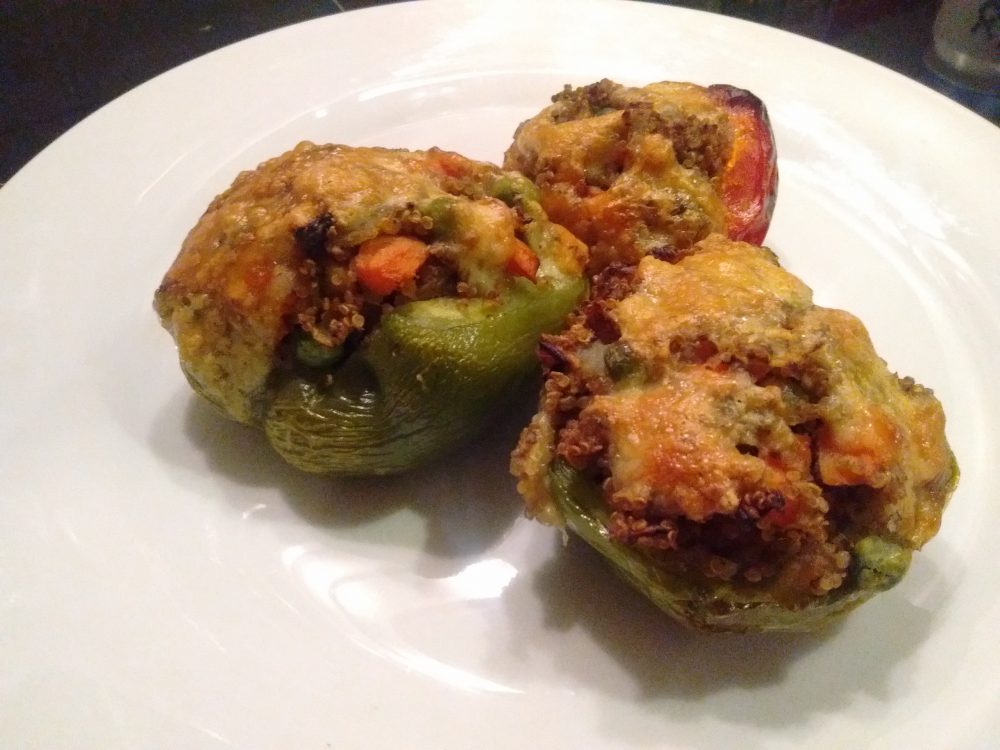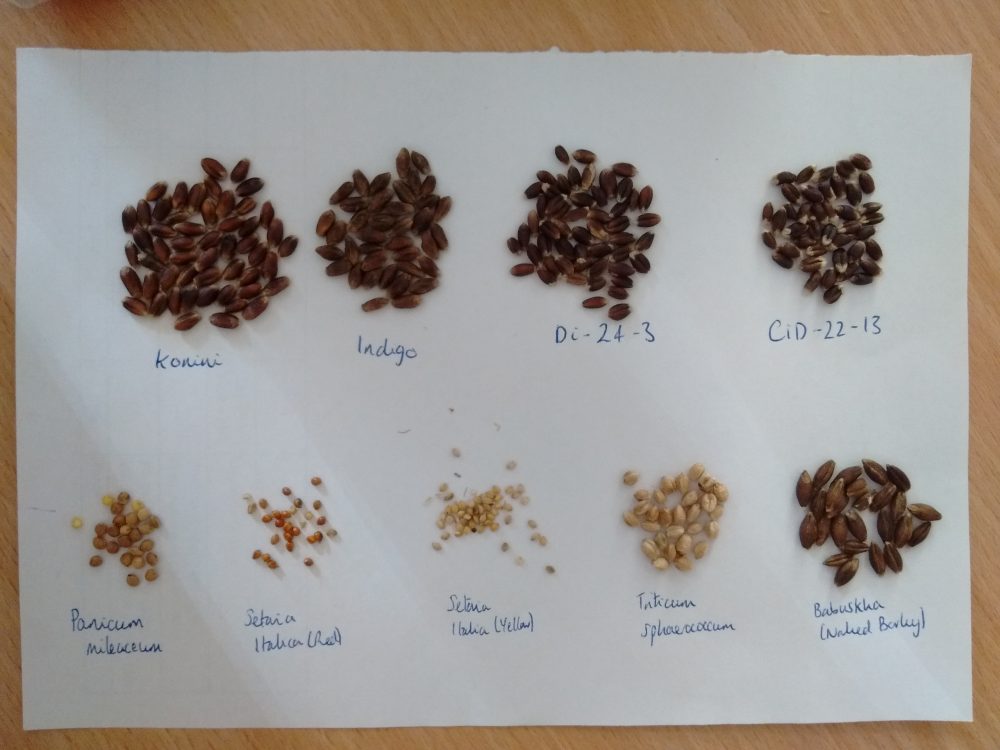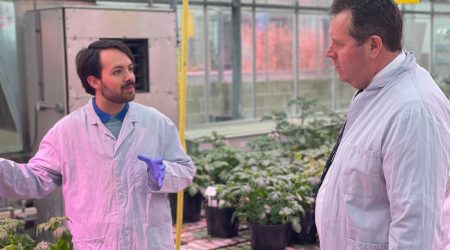Keen on quinoa

By Elizabeth Chapman
As part of my BBSRC-funded PhD at the John Innes Centre, I did a 3-month internship at The British Quinoa Company. This small, Shropshire-based company specialises in the production and retailing of British grown quinoa grain and products.
The British Quinoa Company was founded in 2012 by Stephen Jones, whom originally obtained a PhD in Crop Pathology from the University of Nottingham, and is run from the family farm.
Part of the attraction to Stephen’s company was our shared academic background, and my desire to understand how he went on to establish his own company, growing a novel food crop commercially.
I was also excited by the range and variety of tasks which were on offer. The company’s relatively small size meant that I felt my contribution would be truly valued and appreciated.
During my internship, I was involved in researching alternative crops which could potentially be grown in the UK, to expand the company’s existing cropping portfolio. This included researching novel crops currently grown, making enquiries with associated farmers, scientists, breeding companies and breeders, asking for advice and ultimately sourcing seeds to trial.
I was also given the opportunity to assist with new product development, including researching current quinoa containing products, collating and amending recipes, alongside product tastings and recording feedback to be communicated to the manufacturer.
Product tastings provided me a valuable insight into how ingredients behave, particularly regarding development of gluten-free food, and it was fun to consider the changes required to improve them in future.
I would routinely conduct market research and feasibility reports, regarding potential new products within the company and identify companies for whom the products may be of interest.
Alongside more scientific work, the internship allowed me to experience other aspects of the business and learn new skills, including sales and marketing. I was tasked with approaching new retailers and manufacturers who may be interested in taking receipt of quinoa products, and tracking any resultant orders. For this team-working proved essential, particularly in the successful delegation of tasks to ensure efficient dispatch of samples to distributors.
The sales and marketing element of the internship also included editorial tasks, such as; proof-reading marketing material, promotional articles, supplier contracts and written packaging content; as well as reviewing the latest packaging designs and providing feedback, plus researching alternative brands’ packaging layouts for styling ideas.
This variety of experiences gave me a valuable insight as to how to bring a ‘novel’ crop to market, and the complexities of crop cultivation, variety sourcing, plant breeders’ rights and contractual growing arrangements; through to food grade processing, bulk ingredient supply, selling to retailers and supplying food manufacturers.
This is in sharp contrast to wheat, my research topic, which has a long-standing history of cultivation and consumption, with existing markets and requirements pre-defined.
The sales side provided additional insight into product commercialisation and how small businesses work, particularly their financial setups.
Overall the internship was highly rewarding, and a highlight was receiving a shipment of unusual seed from Denmark on the last day of my internship, which had required considerable effort to obtain.
I like the idea of running my own company, I’ve often wondered what it would be like, and working for The British Quinoa Company highlighted the potential benefits and pitfalls of doing so.
The experience taught me a lot, and helped confirm my strong interest in pursuing a plant-breeding, or industry-based career in future.






